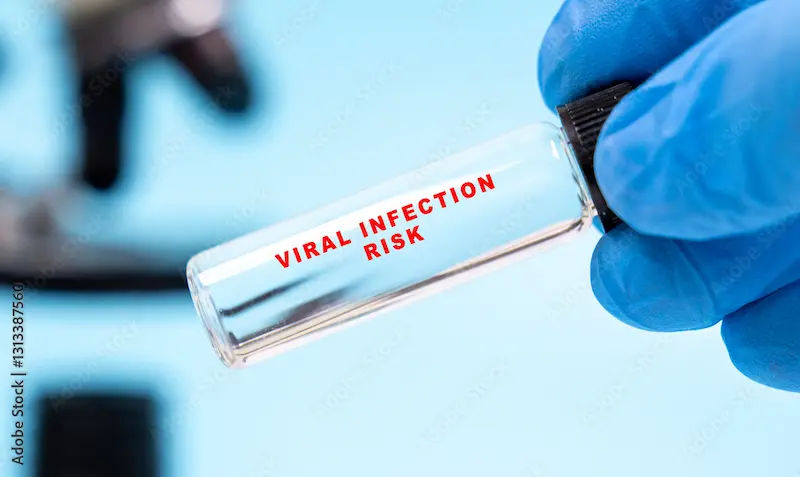Immune Health Tests For Immuno‑Compromised Individuals: A Comprehensive Guide
Explore essential immune health tests for immuno-compromised individuals. This comprehensive guide covers key screenings to monitor immunity, detect infections early, and manage health proactively.

Written by Dr. Shaik Abdul Kalam
Reviewed by Dr. Rohinipriyanka Pondugula MBBS
Last updated on 9th Sep, 2025

Immunity plays a vital role in protecting the body from everyday infections, inflammation, and even certain cancers. But for individuals with a compromised immune system, due to chronic illness, medications, or medical conditions, this natural defence is often weakened. To manage health effectively in such cases, regular immune health testing is not just helpful, it’s essential.
With advancements in diagnostics, a wide range of immune panel tests are now available to assess how well your immune system is functioning. These tests offer valuable insights into infection risk, treatment response, and even potential side effects of immunosuppressive medication. This detailed guide explains why immune health tests are important, which blood tests are recommended for immunocompromised individuals, and how often they should be done. Whether you are living with HIV, undergoing chemotherapy, taking steroids, or recovering from organ transplant, this article will help you choose the right tests and interpret the results wisely.
Why Should Immuno‑Compromised Individuals Get Regular Immune Testing?
An immunocompromised person is more likely to develop infections, respond poorly to vaccines, and face slower recovery. Many may not even show typical signs of infection until it’s severe.
Regular immune health testing can help you:
- Detect infections early, even before symptoms start
- Track the effect of medications on your immune system
- Monitor immune recovery after chemotherapy, transplant, or HIV treatment
- Guide timely vaccinations or immunoglobulin therapy
- Prevent complications through personalised treatment planning
Whether you're immunosuppressed due to disease or medication, having a routine immune panel test can significantly reduce health risks.
Who Needs an Immune Health Test?
You should consider routine immune health testing if you:
- Have HIV or AIDS
- Are undergoing cancer treatment like chemotherapy or radiation
- Are taking immunosuppressive drugs (for organ transplants, autoimmune disease, or arthritis)
- Were born with a primary immunodeficiency
- Are a senior citizen with repeated infections
- Take long-term steroids or biologics for chronic illness
- Have poorly controlled diabetes or kidney disease
In such cases, the immune system is either suppressed or overactive, and lab testing helps strike the right balance.
Most Important Immune Health Tests to Know About
When evaluating immunity, doctors usually begin with baseline markers such as CBC and CRP, and then expand to detailed antibody and cell subset testing like IgG, IgM, T-cell panels, and more. Let’s explore these essential tests.
1. Complete Blood Count (CBC)
A CBC gives a snapshot of your overall health by checking levels of red blood cells, white blood cells (WBC), and platelets.
Why it matters:
- Low WBC count (leukopenia or neutropenia) suggests reduced immune defence
- Low platelets may indicate bone marrow suppression from medications
- High WBC count may point to active infection or inflammation
Ideal for: Baseline screening and ongoing monitoring for those on immunosuppressive therapy.
Frequency: Every 2 to 3 months
2. C‑Reactive Protein (CRP)
CRP is a protein that rises in response to inflammation or infection.
Why it matters:
- Elevated CRP may indicate early or ongoing infection, even when symptoms are absent
- Helps distinguish between bacterial and viral infections
- Useful for tracking immune response during flare-ups in autoimmune diseases
Frequency: Every 3 to 6 months or during illness
3. Immunoglobulin Panel (IgG, IgM, IgA)
This comprehensive immune panel test evaluates the levels of three important antibodies:
- IgG: Long-term immunity and protection from prior infections or vaccines
- IgM: First responder to new infections
- IgA: Mucosal immunity (protects lungs, gut, and saliva)
Why it matters:
- Low IgG or IgA increases risk of recurrent infections
- High IgM may suggest ongoing infection or autoimmune response
- Used to evaluate primary immunodeficiency, chronic infections, or monitor IVIG therapy
Book Immunoglobulin Panel Here
Frequency: Every 6 months or more frequently if you’re prone to infections
4. Immune Deficiency Panel - I, (CD4, CD8)
T-cells are critical white blood cells that help fight infections. CD4 and CD8 are the two most important subsets.
Why it matters:
- CD4 count is crucial in HIV patients to monitor disease stage
- CD8 counts help evaluate viral immunity and immune balance
- CD4/CD8 ratio helps assess immune recovery or suppression
Frequency: Every 3 to 6 months in HIV, transplant, or autoimmune disease patients
Get These Tests To Check Your Immunity
5. Natural Killer (NK) Cell Panel
NK cells help detect and destroy viruses and cancer cells.
Why it matters:
- Low NK cells can lead to persistent infections or cancer risk
- Often affected in patients on immunosuppressants or biologics
Frequency: Once every 6 to 12 months, depending on health status
6. Autoimmune Antibody Tests (Ana By Immunoblot)
Some immunocompromised states result from or lead to autoimmune conditions like lupus or Sjögren’s syndrome.
Why it matters:
- ANA positivity can signal an overactive immune system attacking your own tissues
- Helps differentiate between immunodeficiency and autoimmune disease
Book Autoimmune Antibody Test Here
Frequency: Once a year or as symptoms indicate
7. Vitamin D and B12 Levels
These nutrients are critical for healthy immune function.
Why it matters:
- Deficiencies can impair immunity, healing, and increase fatigue
- Needed for immune modulation and reducing inflammation
Frequency: Every 6 to 12 months
8. Urine Routine and Microscopy
Some medications or infections may cause kidney strain or urine abnormalities in immunocompromised patients.
Why it matters: Detects early signs of kidney involvement, infection, or inflammation
Frequency: Annually or when symptoms arise
How Often Should You Take Immune Health Tests?
Monitoring your immune system regularly is crucial, especially if you have a condition that compromises immunity. The frequency of immune health tests depends on your medical history, current treatments, and overall risk level. Here's a quick guide to how often you should get tested based on common conditions and risk factors:
What to Expect Before and After Testing
Understanding what to expect before and after your immune health test can help you prepare better and ensure accurate results. While most tests are simple and require minimal preparation, proper follow-up is essential for effective diagnosis and treatment planning. Here's what you should keep in mind:
1. Before the test:
- Most immune tests don’t require fasting
- Stay hydrated and inform your provider of any medications
- Some tests (like ANA) should not be done during infection or high inflammation
2. After the test:
- Always consult your doctor for interpretation
- Do not self-medicate based on results alone
- Follow up with any further tests or treatment modifications
How to Choose the Right Immune Panel Test Package?
Apollo 24|7 offers a range of immune panel test packages designed to support individuals with weakened or compromised immune systems. To ensure you select the most appropriate package, consider the following:
- Match the panel to your condition, whether it's HIV, cancer, autoimmune disease, or post-transplant recovery.
- Consider the specific immune markers needed, such as CD4/CD8 counts, IgG/IgM levels, or NK cell profiling.
- Choose a package based on the stage and severity of your condition (routine monitoring vs. active infection or flare-up).
- Look for panels that include key tests like CBC, CRP, immunoglobulins, and T-cell subsets.
- Opt for a package that offers flexibility, some panels allow customisation based on your doctor’s recommendations.
- Always consult your healthcare provider to confirm the most relevant tests and their frequency.
- Ensure the lab is NABL or ISO-accredited to guarantee accurate, standardised, and quality-assured results.
Explore Immunity Test Packages on Apollo 24|7
Conclusion
If you’re immunocompromised, your immune system isn’t just a defence mechanism. It’s a vital sign that must be monitored regularly. With immune health tests like CBC, CRP, IgG, IgM, and T-cell panels, you can catch warning signs early, make informed treatment decisions, and stay a step ahead of complications.
Apollo 24|7 offers convenient, expert-designed immune panel tests with the option for home sample collection, ideal for those with lowered immunity. Don’t wait until symptoms worsen, monitor your immune health regularly and live with confidence and peace of mind. Book your immune test today with Apollo 24|7.


